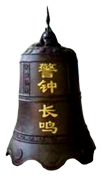|
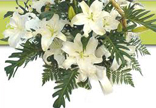    
许荣仙,河北保定人, 抗日烈士子弟。 1965年毕业后分配到天津大学任教授。 天津大学德语教授潘子立的夫人。 许荣仙于2012年7月15日不幸去世。
许荣仙教授生前照片
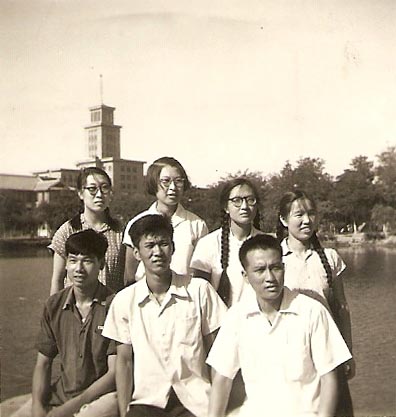
毕业照后排右起第二人为许荣仙,1965。其餘前排左起:梁一雄、常耀信、徐基榮、楊新芝、孫學詩、龐賀雲
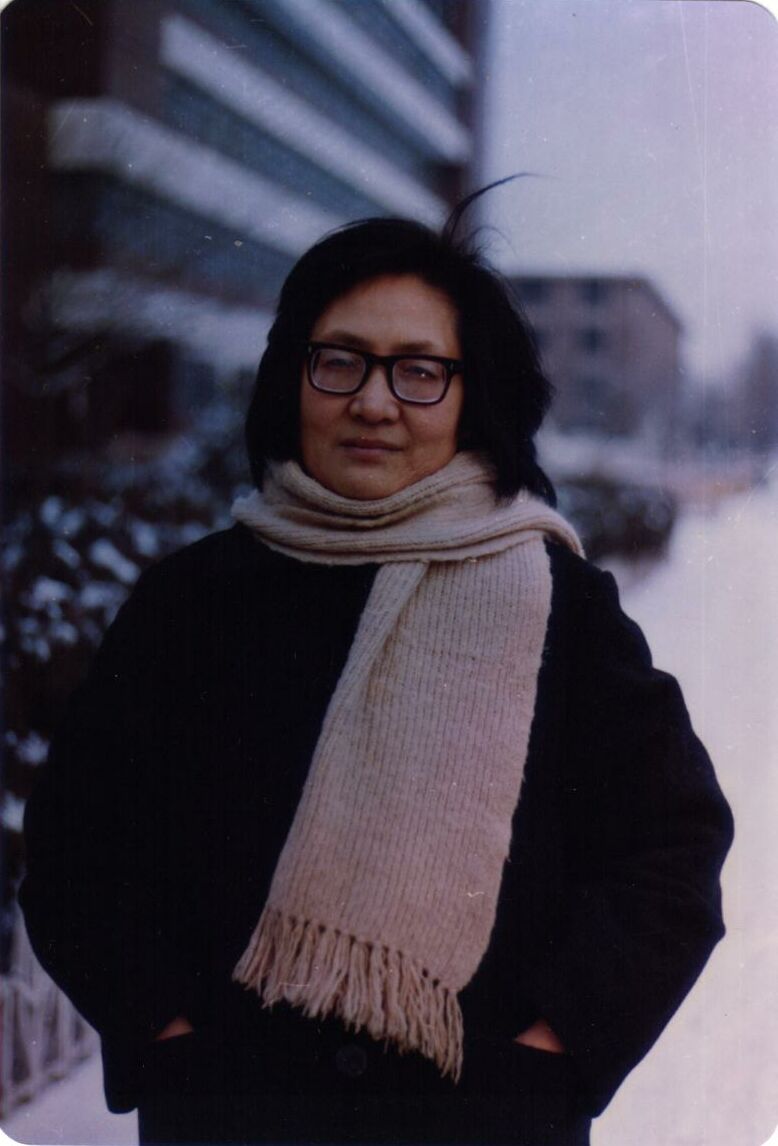
许荣仙1980年代
| |
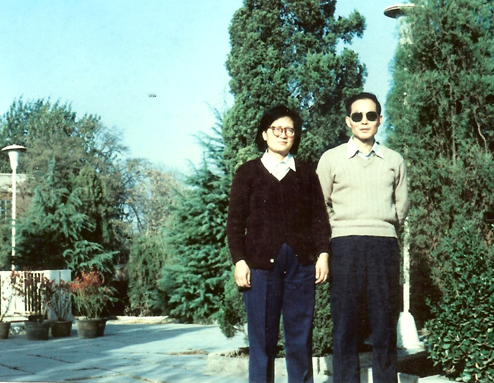
许荣仙潘子立夫婦 1980,天津
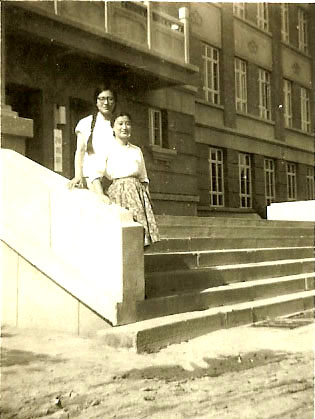
许荣仙和朱柏桐于1965
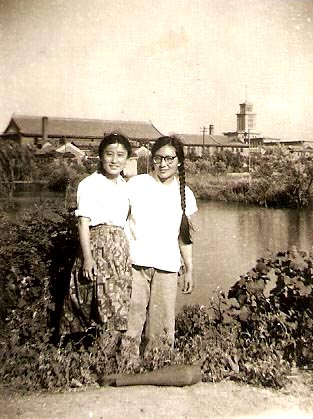
朱柏桐许荣仙,校园南门外 1965
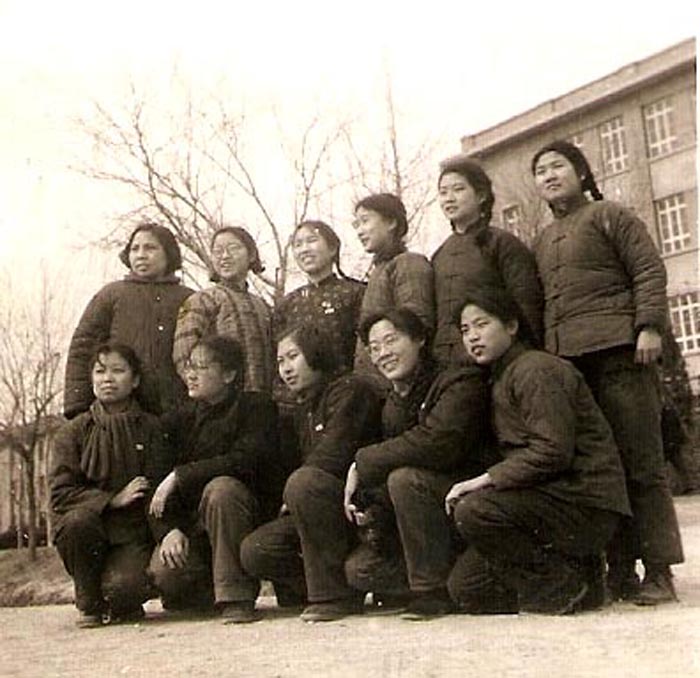
1960级女同学:前排左起张培华、许荣仙、孙学诗、蔡文美、王蕴茹
后排左起鲁琪、贺曼莉、庞鹤云、朱柏桐、谷启楠、刘秀清,1962年三八妇女节
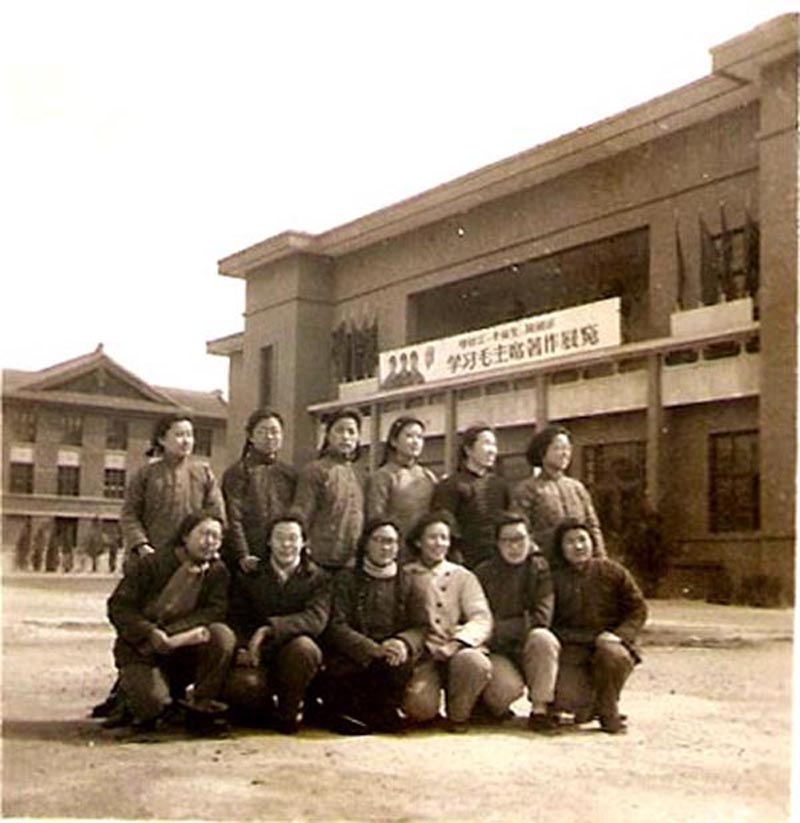
1960級女同學,前排左起孙学诗、蔡文美、许荣仙、汪莹、杨新芝、刘秀清;
后排左起朱柏桐、张培华、王蕴茹、谷启楠、庞鹤云、贺曼莉, 小礼堂前,early 60s
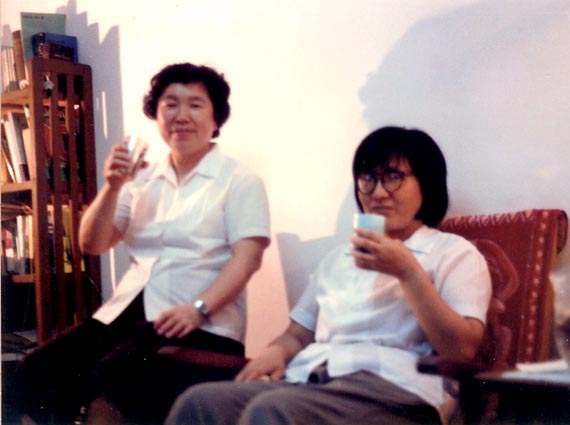
庞贺云许荣仙于高东山祝宝银家,early 1980s
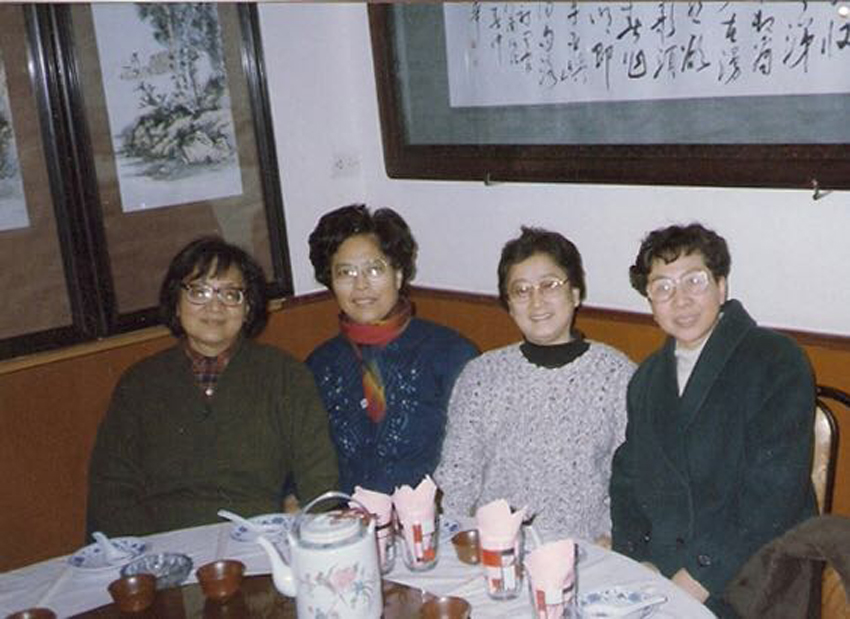
左起许荣仙、王蕴茹、朱柏桐、祝宝银, 1995年12月于天南大之间的餐厅。
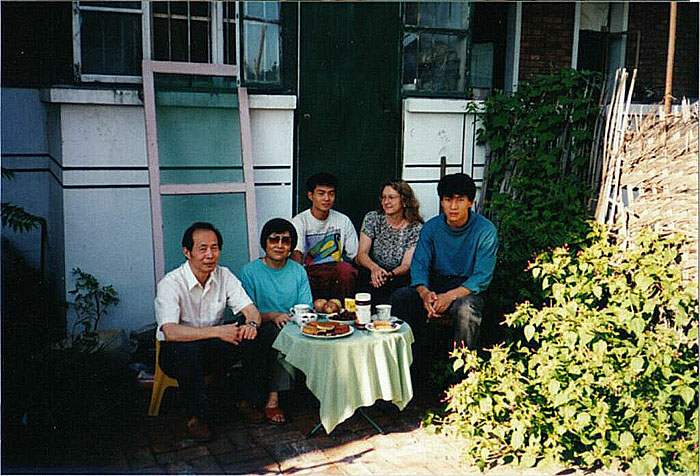
老潘、荣仙、潘逸、Mrs. Panyi、潘遜
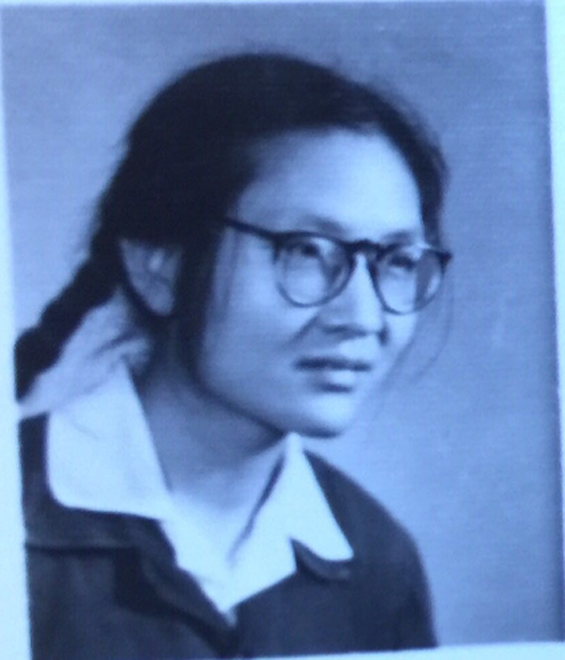
青年榮仙
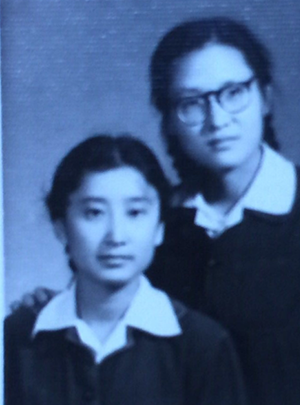
榮仙、柏桐
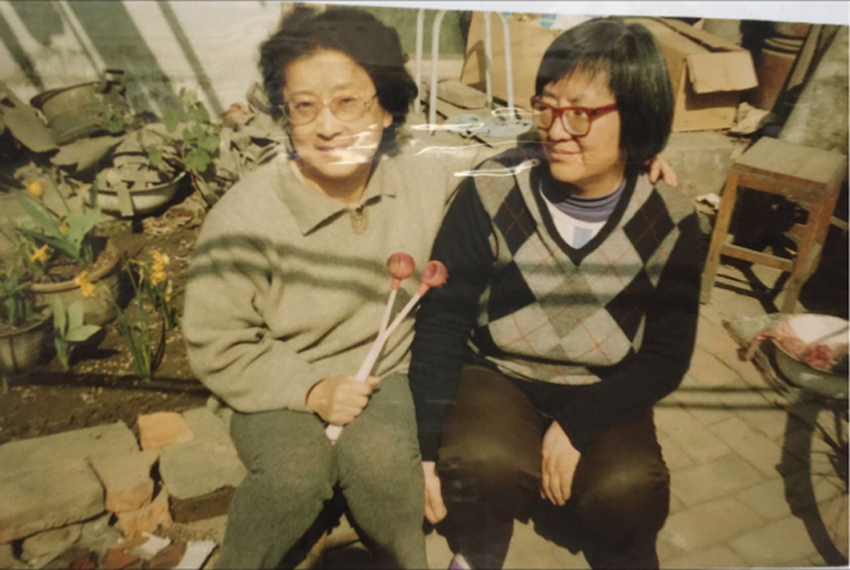
朱柏桐许荣仙
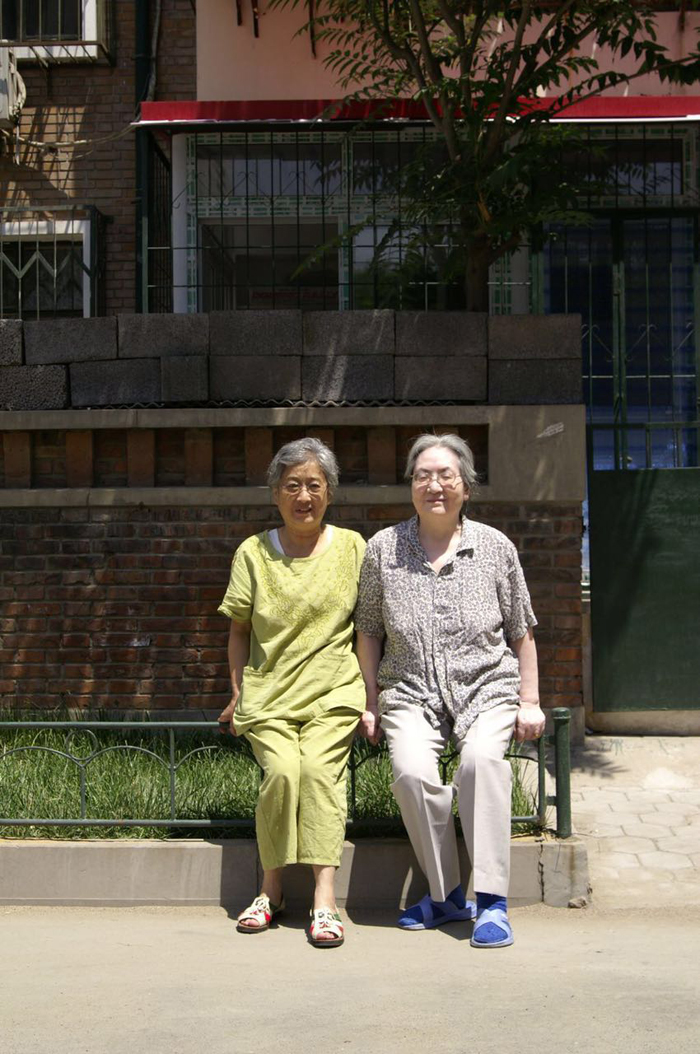
朱柏桐、許榮仙于天大校園
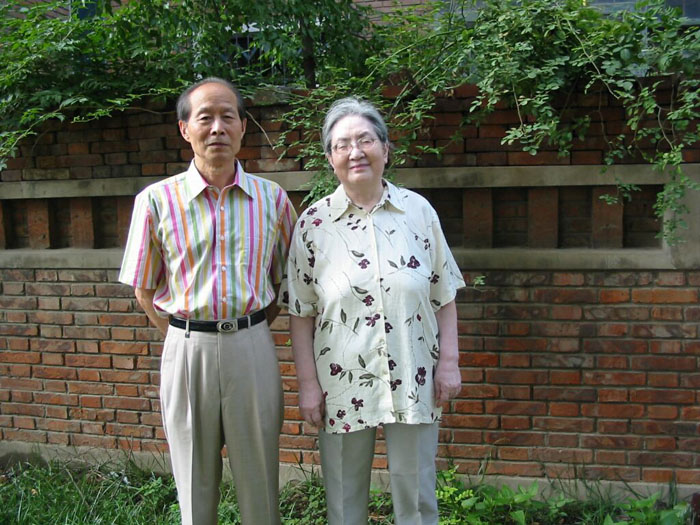
老潘荣仙夫婦,07/15/2006
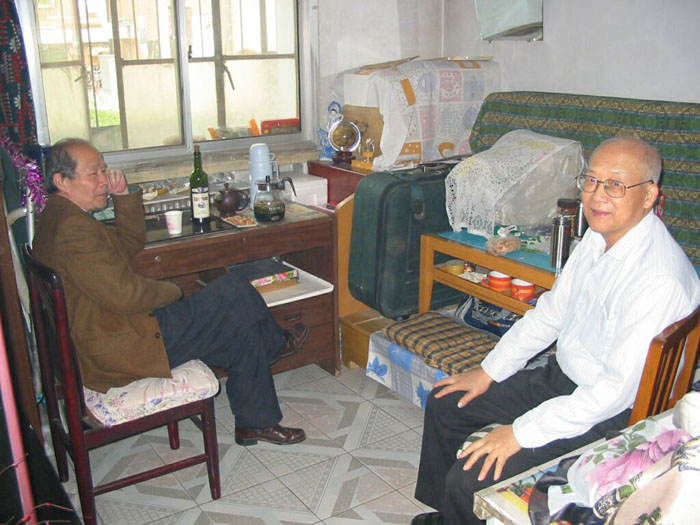
潘子立、夏乙琥兩位教授
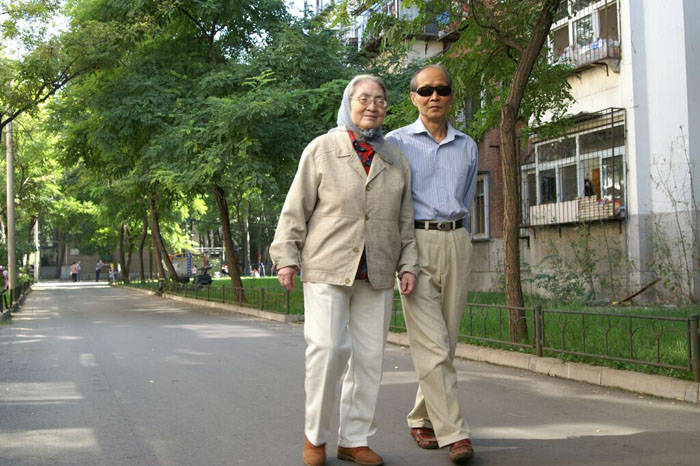
荣仙老潘夫婦,10/02/2009
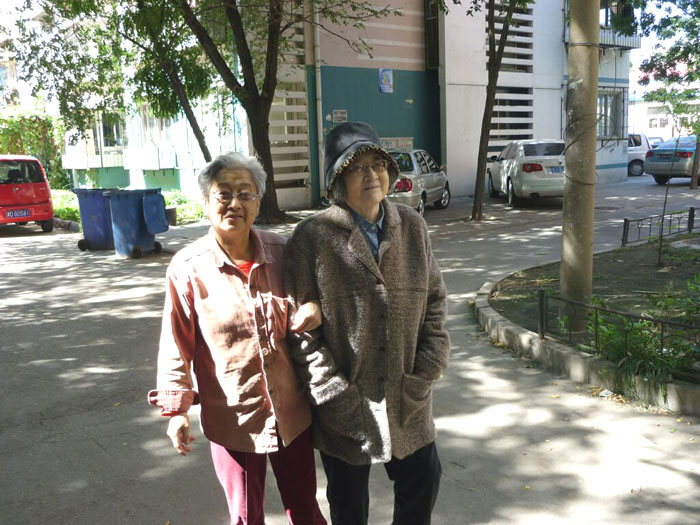
柏桐、荣仙,09/19/2011
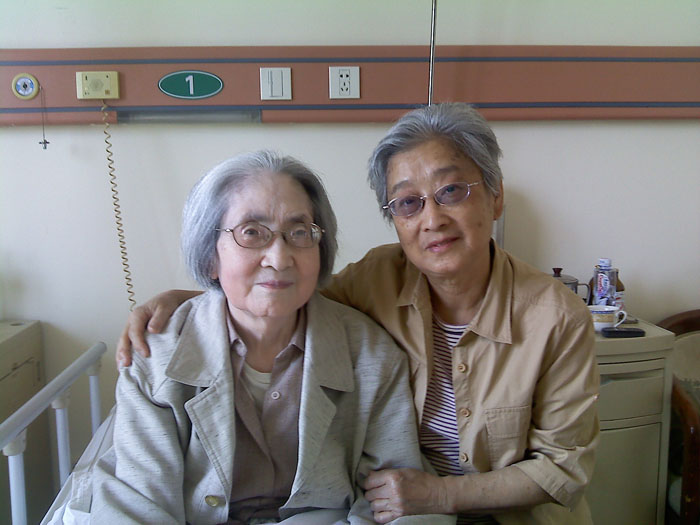
许荣仙和朱柏桐 05/30/2012
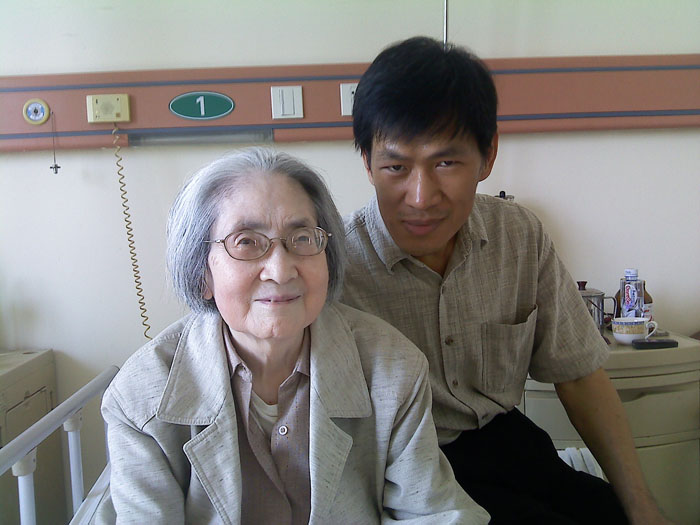
许荣仙和儿子潘遜 05/30/2012
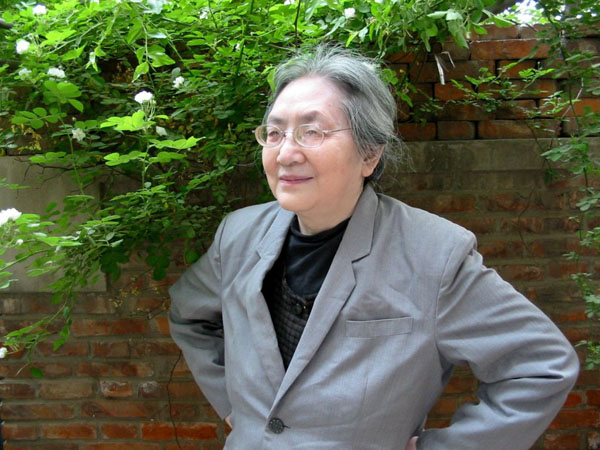
荣仙于05/08/2006
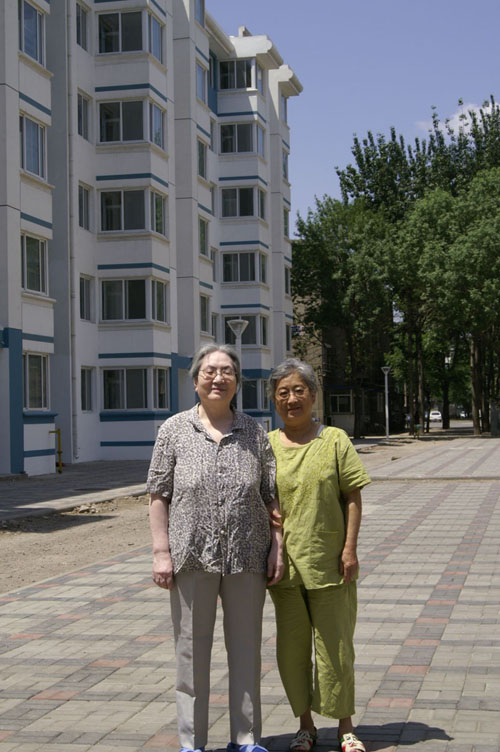
荣仙与朱柏桐, 06/10/2006

荣仙与朱柏桐, 06/10/2006
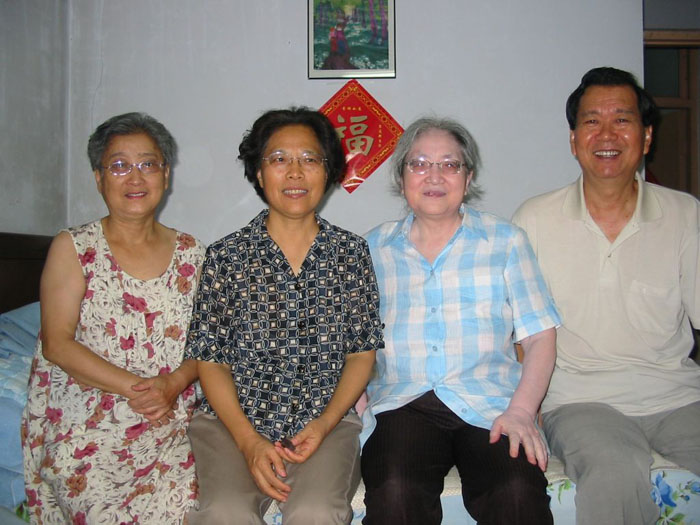
荣仙与柏桐、蕴茹耀信夫婦。 05/08/2005
|
| |
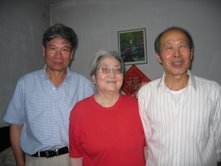
许荣仙、潘子立和梁一雄于2008,天津
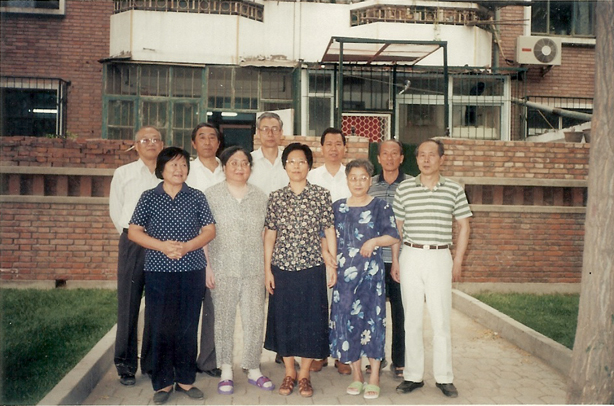
前排左起第二人许荣仙,第五人潘子力, 1999。其餘前排坐起:朱柏桐、王蘊茹、張艷玲(徐基榮夫人)、夏乙琥、宮自強、劉士聰、常耀信。
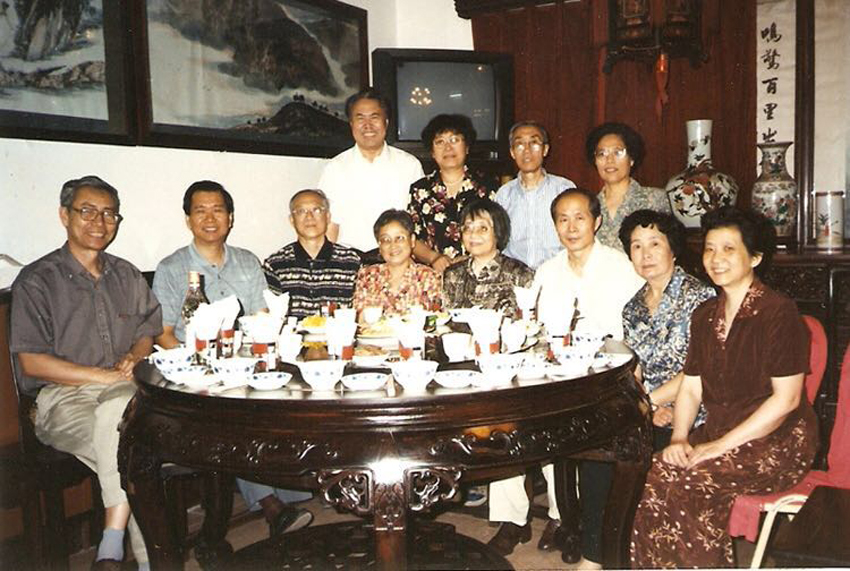
外文系英专65届在天津的老同学聚会2004年。前排右起第四人是许荣仙。其餘前排左起:劉士聰、常耀信、夏乙琥、朱柏桐、潘子立、楊小愛、谷啟楠、崔永祿、孫毅兵、李維樹王蘊茹。
|
  
|
English Poet W.H.Auden (1907-1973) |
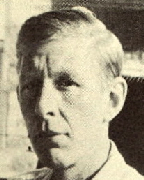
W.H. Auden
(This photo is in the public domain in the U.S.)
Wystan Hugh Auden (1907–1973) who signed his works W. H. Auden, was an Anglo-American poet, born in England, later an American citizen, regarded by many as one of the greatest writers of the 20th century His work is noted for its stylistic and technical achievements, its engagement with moral and political issues, and its variety of tone, form and content. The central themes of his poetry are love, politics and citizenship, religion and morals, and the relationship between unique human beings and the anonymous, impersonal world of nature.
Auden grew up in Birmingham in a professional middle class family and read English literature at Christ Church, Oxford. His early poems, written in the late 1920s and early 1930s, alternated between telegraphic modern styles and fluent traditional ones, were written in an intense and dramatic tone, and established his reputation as a left-wing political poet and prophet. He became uncomfortable in this role in the later 1930s, and abandoned it after he moved to the United States in 1939, where he became an American citizen in 1946. His poems in the 1940s explored religious and ethical themes in a less dramatic manner than his earlier works, but still combined traditional forms and styles with new forms devised by Auden himself. In the 1950s and 1960s many of his poems focused on the ways in which words revealed and concealed emotions, and he took a particular interest in writing opera librettos, a form ideally suited to direct expression of strong feelings.
He was also a prolific writer of prose essays and reviews on literary, political, psychological and religious subjects, and he worked at various times on documentary films, poetic plays and other forms of performance. Throughout his career he was both controversial and influential. After his death, some of his poems, notably "Funeral Blues" ("Stop all the clocks") and "September 1, 1939", became widely known through films, broadcasts and popular media.
Lullaby
by W.H. Auden
Lay your sleeping head, my love,
Human on my faithless arm;
Time and fevers burn away
Individual beauty from
Thoughtful children, and the grave
Proves the child ephemeral:
But in my arms till break of day
Let the living creature lie,
Mortal, guility, but to me
The entirely beautiful.
Soul and body have no bounds:
To lovers as they lie upon
Her tolerant enchanted slope
In their ordinary swoon,
Grave the vision Venus sends
Of supernatural sympathy,
Universal love and hope;
While abstract insight wakes
Among the glaciers and the rocks
The hermit's sensual ecstasy.
Certainty, fidelity
On the stroke of midnight pass
Like vibrations of a bell,
And fashionable madmen raise
Their pedantic boring cry:
Every farthing of the cost,
All the dreaded cards foretell,
Shall be paid, but from this night
Not a whisper, not a thought,
Not a kiss nor look be lost.
Beauty, midnight, vision dies:
Let the winds of dawn that blow
Softly round your dreaming head
Such a day of sweetness show
Eye and knocking heart may bless,
Find your mortal world enough;
Noons of dryness see you fed
By the involuntary powers,
Nights of insult let you pass
Watched by every human love.
|
Musée des Beaux Arts
by W.H. Auden
About suffering they were never wrong,
The Old Masters; how well, they understood
Its human position; how it takes place
While someone else is eating or opening a window or just walking dully along;
How, when the aged are reverently, passionately waiting
For the miraculous birth, there always must be
Children who did not specially want it to happen, skating
On a pond at the edge of the wood:
They never forgot
That even the dreadful martyrdom must run its course
Anyhow in a corner, some untidy spot
Where the dogs go on with their doggy life and the torturer's horse
Scratches its innocent behind on a tree.
In Breughel's Icarus, for instance: how everything turns away
Quite leisurely from the disaster; the ploughman may
Have heard the splash, the forsaken cry,
But for him it was not an important failure; the sun shone
As it had to on the white legs disappearing into the green
Water; and the expensive delicate ship that must have seen
Something amazing, a boy falling out of the sky,
had somewhere to get to and sailed calmly on. |
Petition
by W.H. Auden
Sir, no man's enemy, forgiving all
But will his negative inversion, be prodigal:
Send to us power and light, a sovereign touch
Curing the intolerable neural itch,
The exhaustion of weaning, the liar's quinsy,
And the distortions of ingrown virginity.
Prohibit sharply the rehearsed response
And gradually correct the coward's stance;
Cover in time with beams those in retreat
That, spotted, they turn though the reverse were great;
Publish each healer that in city lives
Or country houses at the end of drives;
Harrow the house of the dead; look shining at
New styles of architecture, a change of heart.
|
In Memory Of W.B. Yeats
by W.H. Auden
I
He disappeared in the dead of winter:
The brooks were frozen, the airports almost deserted,
The snow disfigured the public statues;
The mercury sank in the mouth of the dying day.
What instruments we have agree
The day of his death was a dark cold day.
Far from his illness
The wolves ran on through the evergreen forests,
The peasant river was untempted by the fashionable quays;
By mourning tongues
The death of the poet was kept from his poems.
But for him it was his last afternoon as himself,
An afternoon of nurses and rumours;
The provinces of his body revolted,
The squares of his mind were empty,
Silence invaded the suburbs,
The current of his feeling failed; he became his admirers.
Now he is scattered among a hundred cities
And wholly given over to unfamiliar affections,
To find his happiness in another kind of wood
And be punished under a foreign code of conscience.
The words of a dead man
Are modified in the guts of the living.
But in the importance and noise of to-morrow
When the brokers are roaring like beasts on the floor of the Bourse,
And the poor have the sufferings to which they are fairly accustomed,
And each in the cell of himself is almost convinced of his freedom,
A few thousand will think of this day
As one thinks of a day when one did something slightly unusual.
What instruments we have agree
The day of his death was a dark cold day.
II
You were silly like us; your gift survived it all:
The parish of rich women, physical decay,
Yourself. Mad Ireland hurt you into poetry.
Now Ireland has her madness and her weather still,
For poetry makes nothing happen: it survives
In the valley of its making where executives
Would never want to tamper, flows on south
From ranches of isolation and the busy griefs,
Raw towns that we believe and die in; it survives,
A way of happening, a mouth.
III
Earth, receive an honoured guest:
William Yeats is laid to rest.
Let the Irish vessel lie
Emptied of its poetry.
In the nightmare of the dark
All the dogs of Europe bark,
And the living nations wait,
Each sequestered in its hate;
Intellectual disgrace
Stares from every human face,
And the seas of pity lie
Locked and frozen in each eye.
Follow, poet, follow right
To the bottom of the night,
With your unconstraining voice
Still persuade us to rejoice.
With the farming of a verse
Make a vineyard of the curse,
Sing of human unsuccess
In a rapture of distress.
In the deserts of the heart
Let the healing fountains start,
In the prison of his days
Teach the free man how to praise.
|
Funeral Blues
by W.H. Auden
Stop all the clocks, cut off the telephone,
Prevent the dog from barking with a juicy bone,
Silence the pianos and with muffled drum
Bring out the coffin, let the mourners come.
Let aeroplanes circle moaning overhead
Scribbling on the sky the message He is Dead.
Put crepe bows round the white necks of the public doves,
Let the traffic policemen wear black cotton gloves.
He was my North, my South, my East and West,
My working week and my Sunday rest,
My noon, my midnight, my talk, my song;
I thought that love would last forever: I was wrong.
The stars are not wanted now; put out every one,
Pack up the moon and dismantle the sun,
Pour away the ocean and sweep up the woods;
For nothing now can ever come to any good.
|
September 1, 1939
By W.H. Auden
I sit in one of the dives
On Fifty-second Street
Uncertain and afraid
As the clever hopes expire
Of a low dishonest decade:
Waves of anger and fear
Circulate over the bright
And darkened lands of the earth,
Obsessing our private lives;
The unmentionable odour of death
Offends the September night.
Accurate scholarship can
Unearth the whole offence
From Luther until now
That has driven a culture mad,
Find what occurred at Linz
What huge imago made
A psychopathic god:
I and the public know
What all schoolchildren learn,
Those to whom evil is done
Do evil in return.
Exiled Thucydides knew
All that a speech can say
About Democracy,
And what dictators do,
The elderly rubbish they talk
To an apathetic grave;
Analysed all in his book,
The enlightenment driven away,
The habit-forming pain,
Mismanagement and grief:
We must suffer them all again.
Into this neutral air
Where blind skyskrapers use
Their full height to proclaim
The strength of Collective Man,
Each language pours its vain
Competitive excuse:
But who can live for long
In an euphoric dream;
Out of the mirror they stare,
Imperialism's face
And the international wrong.
Faces along the bar
Cling to their average day:
The lights must never go out,
The music must always play,
All the conventions conspire
To make this fort assume
The furniture of home;
Lest we should see where we are,
Lost in a haunted wood,
Children afraid of the night
Who have never been happy or good.
The windiest militant trash
Important Persons shout
Is not so crude as our wish:
What mad Nijinsky wrote
About Diaghilev
Is true of the normal heart;
For the error bred in the bone
Of each woman and each man
Craves what it cannot have,
Not universal love
But to be loved alone.
From the conservative dark
Into the ethical life
The dense commuters come,
Repeating their morning vow;
'I will be true to the wife,
I'll concentrate more on my work,'
And helpless governors wake
To resume their compulsory game:
Who can release them now,
Who can reach the deaf,
Who can speak for the dumb?
All I have is a voice
To undo the folded lie,
The romantic lie in the brain
Of the sensual man-in-the-street
And the lie of Authority
Whose buildings grope the sky:
There is no such thing as the State
And no one exists alone;
Hunger allows no choice
To the citizen or the police;
We must love one another or die.
Defenceless under the night
Our world in stupor lies;
Yet, dotted everywhere,
Ironic points of light
Flash out wherever the Just
Exchange their messages:
May I, composed like them
Of Eros and of dust,
Beleaguered by the same
Negation and despair,
Show an affirming flame.
|
Let History Be My Judge
by W.H. Auden
We made all possible preparations,
Drew up a list of firms,
Constantly revised our calculations
And allotted the farms,
Issued all the orders expedient
In this kind of case:
Most, as was expectd, were obedient,
Though there were murmurs, of course;
Chiefly against our exercising
Our old right to abuse:
Even some sort of attempt at rising,
But these were mere boys.
For never serious misgiving
Occurred to anyone,
Since there could be no question of living
If we did not win.
The generally accepted view teaches
That there was no excuse,
Though in the light of recent researches
Many would find the cause
In a not uncommon form of terror;
Others, still more astute,
Point to possibilities of error
At the very start.
As for ourselves there is left remaining
Our honour at least,
And a reasonable chance of retaining
Our faculties to the last.
|
Epitaph On A Tyrant
by W.H. Auden
Perfection, of a kind, was what he was after,
And the poetry he invented was easy to understand;
He knew human folly like the back of his hand,
And was greatly interested in armies and fleets;
When he laughed, respectable senators burst with laughter,
And when he cried the little children died in the streets.
|
 
|
|
